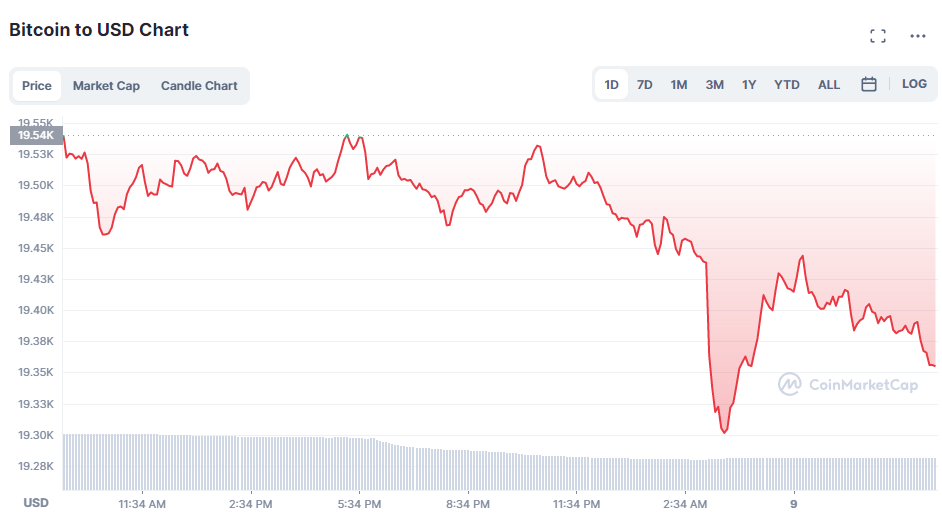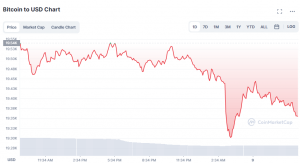Join Our Telegram channel to stay up to date on breaking news coverage
Although the 263,000 jobs added by U.S. companies in September were slightly higher than predicted, they nonetheless show a declining labor market
As the over expected result provides the Federal Reserve less room to choose for a slower rate rise at the next monetary policy meeting in October, Bitcoin (BTC) dropped by approximately 2% after the report was released by the Bureau of Labor Statistics.
Prices of risky assets like stocks and cryptocurrencies may have been protected from further declines if the Fed had eased policy somewhat.
The job data indicates that hiring has slowed down significantly since August, when the United States acquired 315,000 positions; nonetheless, it may still generate alarm for central bankers who are hoping to relieve an extremely tight labor market for rest of the year.
According to Paul Craig, portfolio manager at Quilter Investors, it is now “obvious” that we are on track for another large hike from the Fed, with the market pricing in a 75 [basis point] increase in interest rates at its next meeting.
What Does The Report Say About Rate of Unemployment?
Economists predicted that the unemployment rate would remain unchanged at 3.7%, but it actually fell to 3.5%, the lowest level since July. This may be attributable in part to a dip in labor force participation, which occurred, from 62.4% to 62.3%.
Hourly earnings increased by 0.3% on a monthly basis in August, which is bad news for the Federal Reserve as rising wages contribute to inflationary pressures.
Inflation in the United States is at a 40-year high, and authorities have responded by rapidly raising interest rates by 75 basis points, or 0.75 percentage points, in an effort to rein it in. The Federal Reserve has seldom increased interest rates by more than 25 basis points at a time in recent rate-hiking cycles.
Federal Reserve officials have indicated that they are not prepared to ease monetary policy at this time, with the tight labor market being cited as one reason.
In an interview with CNBC last week, Cleveland Fed Chair Loretta Mester indicated that demand in the job market is still outstripping supply. If we want to bring inflation back under control, we must slow down the growth of both the labor and consumer goods sectors. Once real rates rise and demand begins to moderate more noticeably, there will be trade-offs and you’ll have to wonder if you’ve gone too far or if this position is a good place to stall. That situation has not yet come to that extent.
What about Feds Money?
With the job market showing signs of slowing, traders in federal funds futures have begun to wager that the central bank would reverse course and halt the rate rises shortly. Multiple Fed members have voiced their opposition to this theory.
On Thursday, Minneapolis Fed President Neel Kashkari remarked that they have more work to do and he won’t call for a halt until he has more confidence that underlying inflation has peaked and is, hopefully, declining. He concluded that there is still time to contemplate whether they should pause or not.
Read More
Join Our Telegram channel to stay up to date on breaking news coverage


